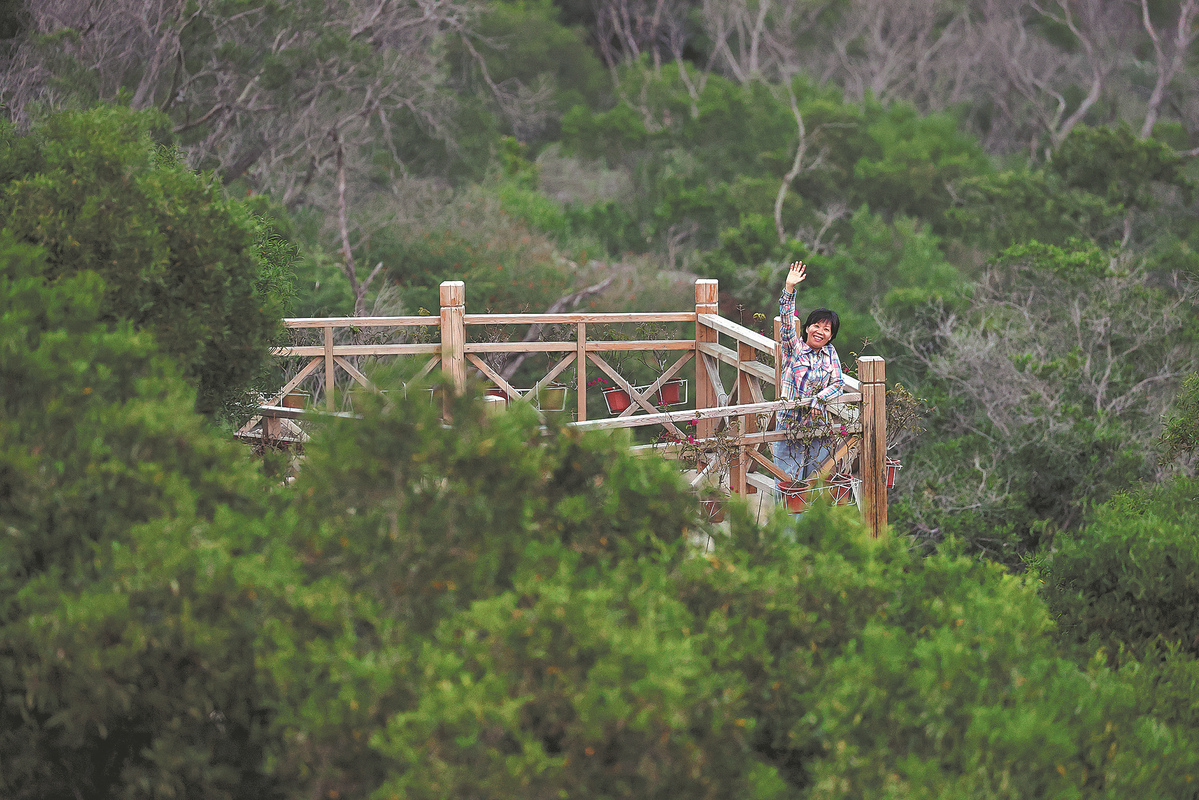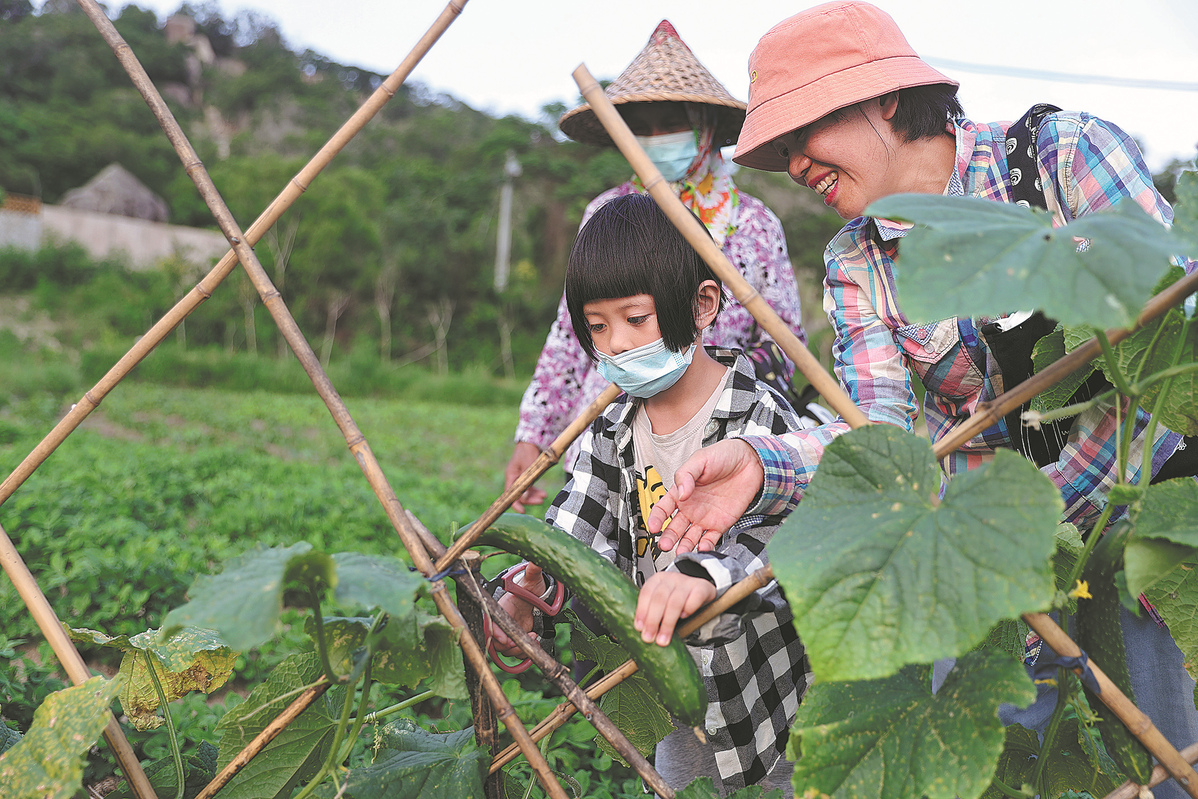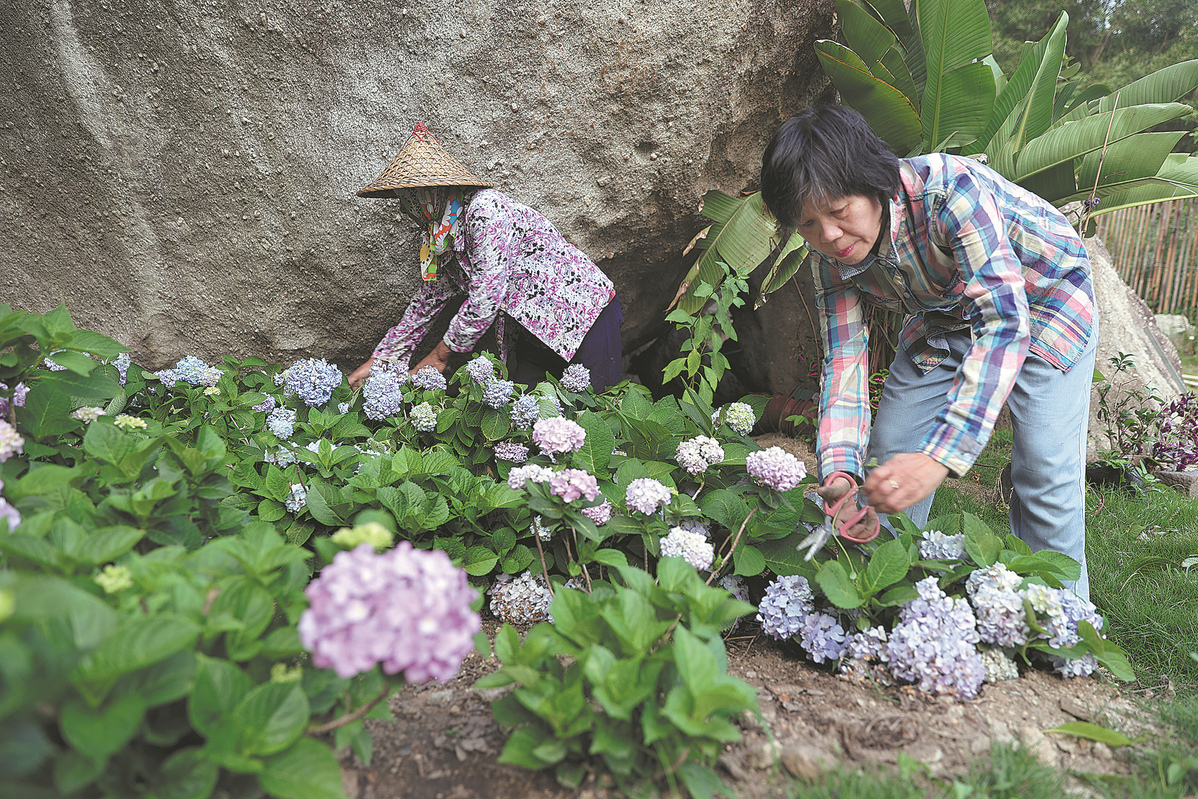Investor from Taiwan focuses on rural tourism
China Daily2023-06-07 13:03
 Wang Shu-chen stands on a platform overlooking the resort she has been building in Quanzhou, Fujian province.CHINA DAILY
Wang Shu-chen stands on a platform overlooking the resort she has been building in Quanzhou, Fujian province.CHINA DAILY
Village in Quanzhou, Fujian, latest project for entrepreneur who was attracted by cultural similarities with island
Wang Shu-chen, an investor from Taiwan, has turned a barren village in Quanzhou, Fujian province, into a beautiful resort that offers visitors idyllic sightseeing and camping.
The entrepreneur, who has been engaged in the development of leisure farms and rural tourism for years, chose Xiadai for its similarities with Taiwan in language and customs.
She stumbled upon the village, which is located within a special zone for Taiwan investment, in February last year. Given its convenient transportation links and breathtaking landscapes, she immediately saw its potential as a resort.
Xiadai is set against a backdrop of mountains and offers stunning views of the sea. With its vast farmland, serene landscapes and simple village life, it shares many similarities with some famous scenic spots in Taiwan.
Wang hired 30 villagers and worked hard to improve Xiadai's appearance, rehabilitating its farmland and transforming abandoned mines.
The team began by cleaning the village and renovating dilapidated houses, after which they built roads into the mountains, as well as a boardwalk and footpath for visitors to enjoy the scenery.
"The concept behind the transformation was to use whatever was readily available in the area. With a clever approach, the natural beauty has been incorporated in the most economical way possible," she said.

Wang (right) helps a child harvest cucumbers at the resort.CHINA DAILY
One abandoned mine was full of stones of differing sizes, which were used by her team to create functional implants.
Wang intends to introduce characteristic Taiwan agricultural products, homestays, mountain book bars, mine concerts and art centers in the future.
In addition, she plans to implement Taiwan service and management concepts to create a quiet, secure leisure and health resort. Corn imported from the island is already growing.
On weekdays, the resort offers free agricultural therapy to families with autistic children and seniors with dementia. On weekends, tourists flock to the resort to camp, barbecue and enjoy leisure activities.
"As it is a relatively enclosed location, people can sunbathe, run around and do whatever they want without any concern," Wang said.
She added that the local government has supported her rural vitalization project, including by providing assistance with water facilities for agricultural land and the introduction of seedlings.
She hopes to turn the village into a successful case study and lure more people from Taiwan to invest and build on the mainland to boost rural vitalization.
Wang was born in Taipei in 1964 and first visited the mainland in 1992 for work. Over the past 30 years, she has worked and lived in various cities, including Beijing and Shanghai.

Wang tends a flower bed at her resort with an employee.CHINA DAILY
"I am persistent about developing here because the mainland has a strong sense of inclusiveness," she said, adding that she has witnessed rapid development and is impressed by the country's inclusive development and poverty alleviation efforts.
"The mainland is moving forward according to its goals and plans, which is admirable," Wang said, adding that residents actively contribute to these goals.
She said that she was also impressed by the poverty alleviation campaign, which has guaranteed the basic needs of those left behind, something that doesn't exist in Taiwan.
However, Wang also noted that many young people in Taiwan may still be confined to an island mentality and lack exposure to the mainland, which highlights the importance of cross-Strait exchanges and interaction between young people to promote understanding and cooperation.
She organizes cross-Strait exchanges every year and sponsors young people to travel to both sides. Her son and daughter act as guides and take mainland students around Taiwan, fostering communication and interaction.
